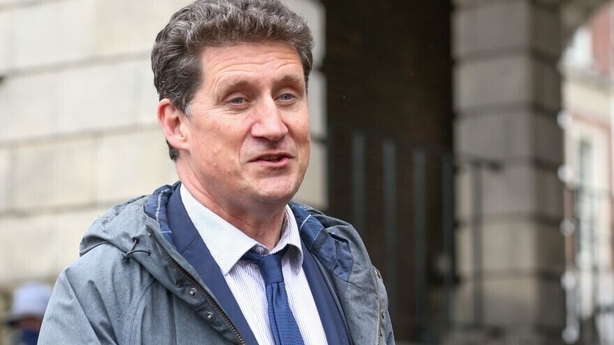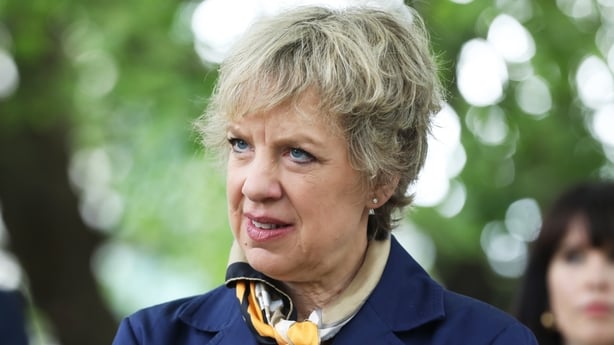Wealthy countries like Ireland must cut fossil fuel subsidies, ramp up the transmission to renewable energy and stop practices that are killing biodiversity and harming nature, An Taisce has warned in the wake of today's new Intergovernmental Panel on Climate Change report.
Kevin O'Farrell, Climate Committee Chair at An Taisce, said: "The scientific evidence offered by the IPCC emphasises no further delay in drastically reducing climate damaging pollution.
"For wealthy, high emitting countries like Ireland that means urgent and rapid action in cutting fossil fuel subsidies, further ramping up transition to renewable energy and stopping practices that are killing biodiversity and harming nature."
Mr O'Farrell warned that some technologies mentioned in the report "are unproven in their effectiveness".
He added: "We can not depend on largely unknown and unproven technologies when the present and future threats to many people and our climate system are so great. It would simply be immoral to gamble the lives of future generations on them."
The Minister for Climate Change, Eamon Ryan, said the report "underlined the importance of the Government's commitment to scaling up and speeding up Ireland’s switch to alternative energy systems to reduce greenhouse gas emissions".
He added: "Ireland's strengthened statutory climate governance framework, established through the 2021 Climate Act, provides the foundations for continued development and implementation of ambitious climate policies in Ireland.

"This year we will adopt Ireland’s first carbon budget programme, including sectoral emission targets."
He said the Government is "prioritising the energy needs of those at most risk of fuel poverty" in the midst of rising energy costs.
"The current energy crisis has underpinned the importance of reducing our reliance on imported fossil fuels and accelerating the switch to our own indigenous, renewable energy."
Minister Ryan also said that "effective international cooperation is critical for the achievement of ambitious climate change mitigation goals - at national, regional and sectoral levels.
"I look forward to working with international partners at the next annual UN climate conference - COP27 - in Egypt later this year, to ensure that we increase ambition and finalise key discussions, particularly on climate finance to ensure appropriate supports for the most vulnerable countries."
Read more climate change stories
Sinn Féin spokesperson on Climate Action, Darren O'Rourke said the IPCC report "highlighted that in order to limit global warming, major change in the energy sector will be required.
"Under current plans, the next generation of offshore wind farms will not be producing electricity until 2026, while a microgeneration scheme that pays households for producing excess green electricity, is still not in place.
"This isn’t good enough. We need a step-change in the pace of delivery across the board."
Labour leader Ivana Bacik said the IPCC has "confirmed that time is running out to save the planet and that meeting Paris Agreement targets require a real and immediate national effort".
She said: "The recent failure of the Climate Action Delivery Board to meet last year is a serious cause for concern about how climate policy is being driven from within Government.
"The Departments of Finance and Public Expenditure cannot be allowed to be bystanders in this process.
"We need speedy progress on the sectoral carbon budgets process as set out in the Climate Act and a whole of Government approach. An updated climate adaptation plan is essential to meet the challenges ahead."

Ms Bacik added: "We must immediately move to set up the Just Transition Commission that can manage our transition to our decarbonised future as demanded by the Just Transition Alliance and to meet the challenge for the less well-off identified in the recent DCU/CLM Climate report."
People Before Profit party Spokesperson on Climate Bríd Smith said the IPCC report demonstrates that "radical action is needed to avert climate catastrophe" and that the window of opportunity to ensure a liveable planet is diminishing.
She said that Ireland needed to "ban the saturation of data centres, ban any Liquefied Natural Gas infrastructure and ensure that investment in renewable energy, free and frequent public transport and a mass retrofitting programme were prioritised by Government".
Trocaire said the "stark" IPCC report must be a "clarion call for all rich nations to finally take urgent action to protect the planet from the further unthinkable devastation that will be caused by climate change.
"The report paints a graphic picture of increasing emissions and the wide gap between climate pledges and action which are impacting millions of vulnerable communities around the globe."
The NGO said the report comes at a time when the world is "sliding backwards" on its climate commitments.
"We are appealing to world leaders to take heed ... there is still a window of opportunity to avoid the worst impacts of the climate crisis. But this window is closing fast, with climate change impacting most on the poorest in the world, particularly women."
Oxfam said in a statement: "This IPCC report pulls no punches. The bleak and brutal truth about global warming is this: barring action on a sweeping scale, humanity faces worsening hunger, disease, economic collapse, mass migration of people and unbearable heat.
"It's not about taking our foot off the accelerator anymore it's about slamming on the brakes. A warming planet is humanity’s biggest emergency."
We need your consent to load this rte-player contentWe use rte-player to manage extra content that can set cookies on your device and collect data about your activity. Please review their details and accept them to load the content.Manage Preferences
Christian Aid Ireland described the report as "a wake-up call for every one of us" but added that "not everyone is equally responsible for the climate crisis".
It stated: "Africa is responsible for only 4% of global emissions even though Africans make up nearly a fifth of the global population. Richer, polluting countries must do more."
Global Action Plan, an environmental NGO based in Ballymun, Dublin said the IPCC scientists were calling on "everyone of us to take responsibility for the crisis".
CEO Hans Zomer said: "Ireland is, per capita, one of the worst climate polluters, and a large part of our national greenhouse gas emissions is related to how we have chosen to live our lives.
"The decisions we make at home contribute directly to our poor climate track record as a country: how we heat our homes, how we cook, what we eat, how we travel, and the products we buy."
He said Global Action Plan aimed to help people understand their own personal contribution to "our unsustainable lifestyles".
The Stop Climate Chaos coalition said the IPPC has painted "a stark picture of increasing emissions and a wide gap between climate pledges and action".
It stated: "Financial flows are up to six times lower than levels needed by 2030 to limit warming to below 1.5 degrees.
"There is sufficient global capital to close this investment gap, but action is needed now.
"The challenge of closing this gap is most difficult for poorer countries who are already suffering most from climate impacts that have been largely caused by the emissions of rich countries."


